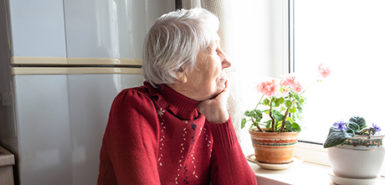
The COVID-19 pandemic has fueled anxiety.
For some, that has come in the form of health anxiety—thinking about their health in ways they never have before.
For others, the pandemic worsened this condition, which they might have wrestled with for years.
“Any one of us can experience health anxiety, and the COVID-19 pandemic has highlighted a lot of that for us,” said Lindsey Hunt, PhD, a Spectrum Health clinical psychologist.
During a time when we’re all called on to monitor symptoms such as fever, cough and congestion, this emphasis on health can grow unhealthy for some.
Health anxiety actually exists on a spectrum, with the most severe end called hypochondria, or hypochondriasis.
“Someone with hypochondriasis has uncontrollable thoughts about their health,” Dr. Hunt said. “Their mind is always fixated on it and that’s what they focus on.”
So, how can we all maintain a healthy balance of vigilance and responsible care and not unhealthy and irrational anxiety? Dr. Hunt shared her top tips for coping with the worry during this challenging time.
1. Don’t let the internet be your doctor.
Dr. Hunt said it’s important to rely on informed and credible sources of information to evaluate your own personal risk for illness.
“I don’t recommend doing a general internet search and typing in your symptoms because you’re going to find something,” Dr. Hunt said.
Your first point of contact for anything related to your health should be your primary care physician, who is familiar with your unique circumstances, she said.
Many times, people allow online searches to diagnose them with illnesses they do not have.
“People will often think they have cancer when it’s very unlikely given their symptoms,” Dr. Hunt said. “It can cause unnecessary anxiety.”
Another problem can be online access to quick-arriving test results, Dr. Hunt said.
“We often get fast test results, before our doctor has even had a chance to call,” she said, encouraging people to wait for their doctor’s interpretation of test results.
2. Avoid sensationalized news.
While some media outlets and social media posts are a source of great information about health issues, others can sensationalize and fuel anxiety.
“The news can highlight a story that’s very uncommon and play it over and over again, which gives us the perception that it’s happening more frequently than it is,” Dr. Hunt said. “It makes us feel more at risk than we are.”
She recommended news reports that focus on information from sources such as the Centers for Disease Control and Prevention or reputable medical professionals.
3. Focus on what you can control.
Ask yourself: What can I control in this situation? What is out of my control?
Dr. Hunt said that’s the advice she gives patients struggling with anxiety. She even encourages them to write down the answers so they can refer back to them.
“A lot of times what’s at the center of anxiety is feeling out of control,” Dr. Hunt said.
“Anxiety can draw us in one of two directions,” she said. “We can stick our heads in the sand and just pretend it’s not a problem because it makes us so anxious. The other side is to shut down, for example somebody who stops going to work, stops talking to their friends or keeps their kids in the house all the time. It’s important for us to be knowledgeable about our risk, but also manage our anxiety in such a way that we’re still functional.”
4. Seek professional help if you need it.
With any anxiety, Dr. Hunt reminded everyone that professional help is available. If your condition is causing any change in your ability to function on a daily basis, she encourages getting help.
“If you’re so overwhelmed or focused on your health that you’re not attending to tasks you need to, or if there’s any shift that has decreased your quality of life, then find a therapist,” she said. “One great thing about the pandemic is that most therapists now work virtually and that makes therapy available to a lot more people.”
5. Take care of yourself.
Find healthy ways to relax—perhaps mindfulness apps, deep breathing, meditation, practicing yoga, listening to music, exercising, getting outside for a walk, or dancing.
“It’s really important to find what works for the individual as far as relaxation,” she said.
Also, make sure you’re keeping up with daily positive behaviors such as eating healthy foods, exercising and getting adequate sleep.
“Those really help your brain function better and it increases your ability to handle stress and manage anxiety.”

 /a>
/a>
 /a>
/a>
 /a>
/a>